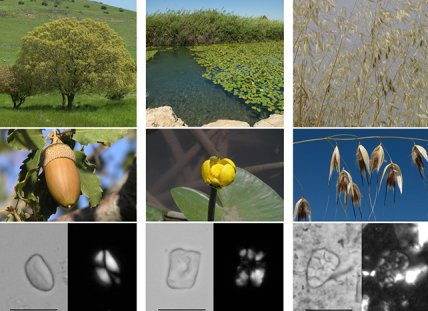Ancient humans had surprising "treats" in their diet that are often disliked by fans of the "paleo diet."
Recently, the topic of "paleo diets" has become increasingly popular, based on the idea that our distant ancestors supposedly avoided complex food processing and preferred simple dishes made from meat, nuts, fruits, and raw vegetables. However, new research indicates that as far back as 780,000 years ago, our ancient ancestors had a quite varied diet.
This is discussed in an article published in the journal PNAS. It highlights that even before the emergence of modern humans, earlier species were capable of processing a wide range of plants to obtain the necessary calories.
While the specific identity of these hominins is not mentioned, it is likely that they were Homo erectus. However, it is possible that they may have been even older species.
The studies were conducted at the Gesher Benot Ya'aqov site, located on the banks of the Jordan River. There, scientists discovered various starch granules and other plant remains, such as acorns, wheat and barley grains, legumes, and some aquatic plants like lilies and water chestnuts.

Microscopic remnants of the aforementioned plants were found on stones that were used as a sort of hammer and anvil. This suggests that our distant ancestors already had a good understanding of how to process tough plants and make "treats" from them.

"We now understand that early hominins gathered a wide variety of plants year-round and processed them using basalt tools," say the researchers.
According to outdated beliefs that formed the basis for the "paleo diet" concept, plants were too tough, unpalatable, or even toxic for human ancestors to bother with. However, recent studies are increasingly showing that this is far from the truth.
Nevertheless, animal remains, such as bones, tend to preserve better over thousands of years. This likely led modern researchers to assume that ancient humans and their relatives preferred meat and fruits that were much easier to process.
It is worth noting that a 2022 study states that at the same site, 780,000 years ago, human ancestors learned how to thermally process fish. Analysis of the found teeth indicated that it was likely roasted over a "low fire," at temperatures between 300-500 degrees.
Previously, it was believed that the processing of plant foods by humans began around 200-300 thousand years ago with the development of more complex stone tools, while thermal processing of food was associated with the late Paleolithic, about 100 thousand years ago. Now, we see that these timelines will need to be pushed back by at least half a million years.
As reported earlier, a burial site in Hungary has been discovered, containing the remains of a woman with weapons. Archaeologists suggest that she may have been involved in military affairs.